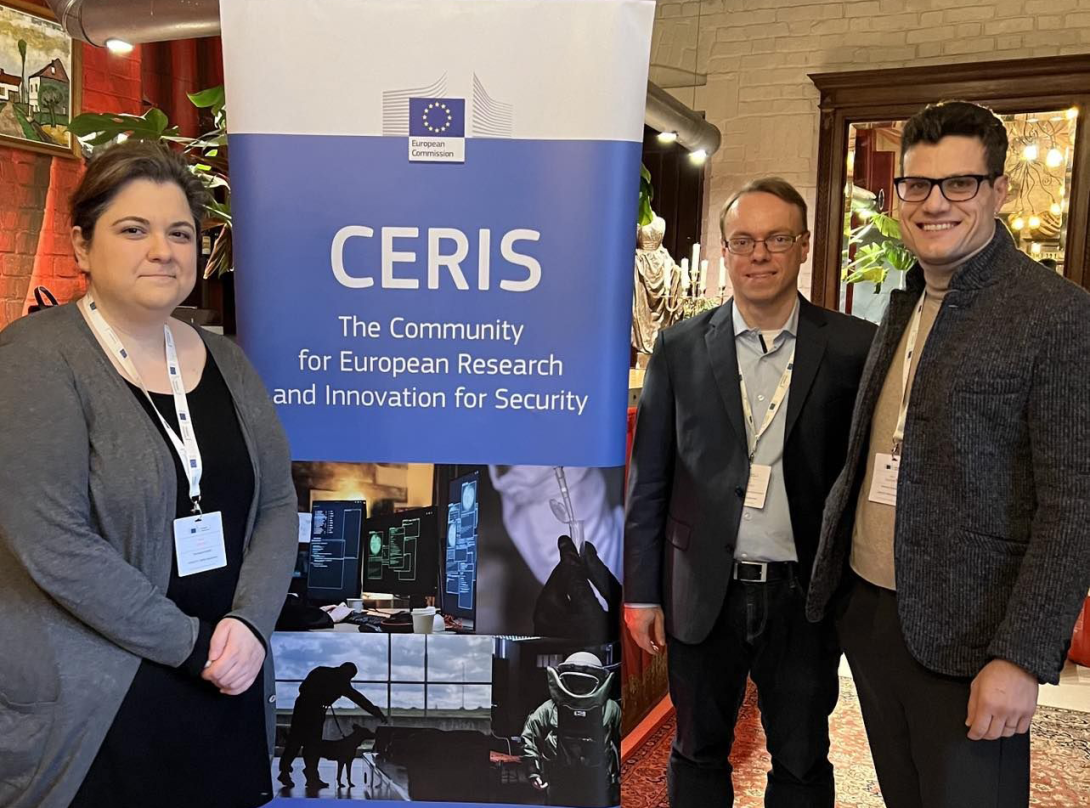
On 14 and 15 December 2023, the “CERIS annual event 2023 – Fighting Crime and Terrorism (FCT)/Resilient Infrastructure” (INFRA) took place in Brussels. The FERMI consortium was represented by the project coordinator, The Bavarian Police Academy. The thematic focus of the event was twofold; on day one, the participants discussed issues around the availability of data. On day two, the discussion centred on the integration of civil society into EU-funded domestic security research (day two).
Access to relevant data
In her opening remarks Marta Cygan from the directorate general for migration and home affairs (DG Home) pointed out that many different research efforts reported to be struggling with access to relevant data including social media posts, videos, images, audio, biometrics and the like. Similar observations were made by members of the LAGO, STARLIGHT and TRACY consortia during their respective project presentations. All three consortia conduct cutting-edge research on FCT datasets of high interest to the overall research community.
LAGO, for instance, aspires to create a whole new framework where FCT data can be shared and even co-created, using artificial intelligence (AI) to annotate datasets based on some guiding examples. Obtaining crime data, which in most cases cannot be shared by law-enforcement agencies (LEAs) due to classification and data protection constraints, is a real challenge. Having experts draft synthetic data instead is quite time-consuming and does not always replace real data. Thus, automatic annotation could greatly facilitate the work of numerous projects including FERMI.
Further, participants learnt about different avenues for potential inter-project collaboration on data issues, the role of Europol’s sandbox in advancing research and a new Internal Security Fund call for proposals on datasets for the European Data Space for Innovation were discussed.
Including NGOs and CSOs in project consortia
Day two looked at the benefits and challenges of bringing in non-governmental organisations (NGOs) and civil society organisations (CSOs). In her keynote speech, Stéphane Duguin, the CEO of the CyberPeace Institute, emphasised the huge diversity of the CSO community and sounded the alarm on a one-size-fits-all approach. Afterwards, NGOs and CSOs shared their experiences and perspectives, making a strong case for their inclusion in consortia. Numerous participants pointed out that NGOs and CSOs can make a powerful contribution to research projects by grasping critical dimensions of domestic security like, for instance, the role of victims. Although government agencies reach out to those on the receiving end of (violent) crimes, the victims may be more amenable to offers of support from non-government players that have fully dedicated themselves to understanding their needs and providing care. The presenters and discussants agreed that ensuring NGOs and CSOs are involved in projects on domestic security is highly desirable but also warned that this might require bridging the gap between entities with divergent priorities and somewhat different cultures.
As FERMI’s project coordinator, BPA appreciated the opportunity to learn more about challenges the FCT/INFRA research community faces. Access to data in particular is a real concern within the FERMI project and hearing how other projects tackle this issue was of immense value. Further, the discussion on the successful integration of NGOs and CSOs was equally relevant given that the FERMI consortium also includes members from this sector. Aside from the panel discussions, there was lots of time to interact with other participants and explore potential areas for collaboration. The FERMI consortium looks forward to future insightful CERIS events and activities and thanks the organisers for putting together yet another highly-relevant workshop.